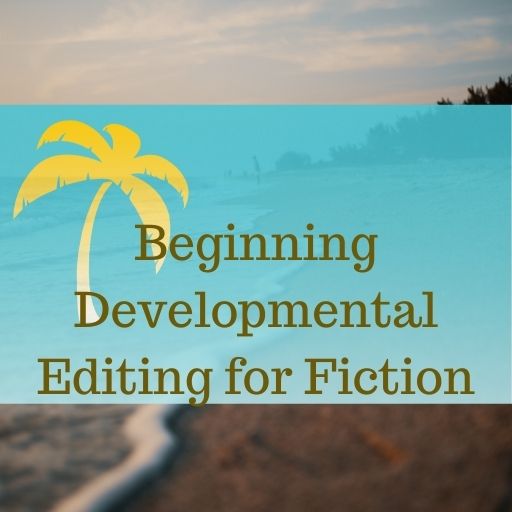Developing a Book Editor Mindset
Developing a book editor mindset is as simple as understanding a few basic principles, including how to read a manuscript like an editor.

Developing a Book Editor Mindset
Beginning developmental editors sometimes ask me how “awful” books make it onto the New York Times bestseller list, and how can we worry about what makes a story “good” when obviously quality doesn’t matter to readers? How do “bad” books make it through the editorial process?
The answer matters because being a good DE means understanding a few basic principles. Embracing the answer(s) to this question is the first step in developing a DE mindset.
Most importantly, criticism and taste are subjective. Two equally competent editors can disagree about what a manuscript needs, and two equally informed readers can have opposite opinions about the quality of a book. In developmental editing, there is no right answer.
Sometimes, what we see in a “bad” book is merely a book that meets its audience’s expectations. If you like novels with dubious characters of ambiguous morality undertaking antisocial actions, a sweet small-town romance is going to be your Kryptonite. To its audience, it may be perfect.
But, okay. Lots of popular stories aren’t well-written, not by anyone’s method of measurement. So, what does that mean for us?
I’ll try not to prompt an existential crisis for anyone.
Understanding Readers is Key to Developing a Book Editor Mindset
I was at a writer’s conference a few years back, listening to Lee Child talk. He’s a thriller writer who is well-known for his Jack Reacher series. Each new release always lands on the bestseller lists. He reported that the number one thing readers say to him when they meet him is: “I finished your book.”
Now, you and I may wonder what is significant about that. I “finish”—that is, “finish reading”—a lot of books. I read easily two hundred books (novels and nonfiction) a year. Most years more. That doesn’t even include what I read for work.
So, think about those readers for whom finishing the book is an accomplishment. They are literally excited because the book held their attention long enough for them to read it from beginning to end.
Politics, luck, and marketing aside, that’s the group that puts books on the bestseller lists. Those are the readers a book has to reach to sell a lot. Not the people like me, who are going to read a bazillion books a year anyway and have expectations shaped by the fact that I know what excellent fiction can do.
I’m not sneering at people for whom finishing a book is a notable achievement. I’m just saying that is a person whose expectations of a novel are vastly different from mine.
Popular doesn’t necessarily equate with “good.” Popular may equate with recognizable storylines told in an entertaining way, or action that moves quickly from start to finish. People always point to Dan Brown as an example of a terrible author who has achieved unmerited success. At the sentence level, he is, at best, workmanlike. So people call him a terrible author. But his books carry you from page to page. He’s a good storyteller, though, at best, a mediocre writer.
In a similar vein: I was reading Michelle Richmond’s The Marriage Pact last year. It was one of those novels that could have used an editor who actually edited—but it was also a bestseller. I didn’t love the book but in the book club I host, I learned that most people were engaged by the premise. They were pulled along by a storyline that included perfectly ordinary main characters doing perfectly ordinary things and suddenly found themselves in the middle of a dangerous conspiracy. That kind of thing engages readers. They get to be terrified in a vicarious way. I rolled my eyes and counted all the plot holes. But what feels like a failure of craft to me isn’t necessarily a problem to the vast majority of readers.
This is one reason why I say we have to read widely in genres we want to edit. We have to understand what readers are looking for when they read. Someone reading Agatha Christie-type puzzle mysteries is looking for a different experience from someone reading a Harlequin romance.
Another thing I try to do is look at popular books to see what makes them tick. It’s easy to dismiss these works, but they are popular for a reason. So, I challenge myself to find out what that reason is.
That said, we can encourage our authors to improve their craft while still appealing to their audiences. We wouldn’t suggest, for example, that a thriller writer slow down the pace to build up the emotional backstory, but we could suggest ways to make the protagonist something other than a cardboard cutout.
Recently a former student asked me to review some edits on a project she was struggling with. “His audience seems to like his work but . . . .” And I knew what she meant. Caricatures rather than characters, scenes stolen directly from popular movies, dialogue I know I’ve heard before. She couldn’t ask the author to rethink everything but I did suggest that she urge the author to dig a little deeper, beyond the most superficial of plot events and characterizations.
In other words, she could point out the most egregious thefts and suggest that the author use plot devices that hadn’t been used ten thousand times before. And just possibly have a female character who wasn’t either a screaming fishwife or a fawning handmaiden.
It turned out that the author was pleased to have some ideas for how to refresh his work. Writing a good story is a difficult business, and sometimes we forget how hard it is to do well.
Developing a DE mindset means understanding that not all readers like the same things you do, share your pet peeves, or are looking for the same thing from a story. Cultivating this understanding of other readers is one way we can grow our developmental editing skills beyond mere personal opinion.
How to Read a Manuscript Like an Editor
Another way you can begin to sharpen your critical skills is to learn to read a manuscript like an editor does instead of the way a reader does. When you’re a reader, you enter the author’s world. You willingly suspend your disbelief to experience this world. That doesn’t mean you won’t notice if an author has made some major mistakes, but it does mean that you’re willing to overlook a few leaps in logic, say, or take on faith that Romeo really does love Juliet despite the fact that they just met twelve minutes ago.
In other words, readers tend to indulge authors. They forgive them for unnecessary prologues and pointless dream sequences and the overuse of adverbs. This is why an author who isn’t necessarily the most gifted writer on the planet can still write books that readers love—they overlook the parts that misfire.
But we can’t do that. Our job is to resist the author. Our job is to invoke our disbelief (for a good cause). We’re not letting unnecessary prologues and pointless dream sequences and the overuse of adverbs get past us. We notice them and take issue with them.
Many developmental editors come from an English major background. That’s great, as it helps you understand what good writing is, but it’s also limited; most literature classes are about what a story means (hermeneutics), not about how it works (poetics).
Developmental editing is more like poetics than hermeneutics, although we use some of the same strategies, such as a close reading. But we’re not trying to figure out what the weather stands for or what the fire imagery means. We’re trying to spot the plot holes.
Others come from a copyediting background. The challenge here is that copy editors are accustomed to pursuing correctness or at least conformity to a style guide. In development, such an approach is misguided; as I mentioned above, there is no right way to developmentally edit a novel. Some approaches are more effective than others, yes, but there are many possible solutions to story problems.
When we read, we must ask ourselves if the author is effective in telling the story. Here are some basic questions to ask while reading:
- Is this a type of genre fiction? If so, does it conform to genre requirements/expectations? If it is genre fiction but does not conform to expectations, is the nonconformity a lack of understanding of the genre and the audience, or a deliberate literary effort designed to transform the genre? If the latter, is it effective?
- Are the characters’ motivations clear and understandable? Are characters consistent in their actions? (If a character wouldn’t steal a quart of milk in Chapter One, but he does in Chapter Five, have convincing changes occurred that would make this action believable?)
- Is the core conflict compelling? (All fiction is, at heart, about conflict.) Or is it the kind of conflict that could be resolved if one character said to another, “You know, I have an evil twin”?
- Is the point of view consistent throughout? For example, if the piece is written in first person, does it include only information that that character could know?
- Does the narrative arc reach a satisfying conclusion?
There are others we need to ask as well (such as about setting and plausibility) but these are good ones to start with. Practice with any novel you happen to be reading. Apply a critical framework to the story and ask these questions. Take notes!
And have a little faith in yourself, too. Keep in mind that if you’re interested in doing DE work in fiction, you’re probably an avid reader. You already know how frustrating it is when you encounter a plot hole or when a character does something, not because the character is the kind of person who would do that thing but because the plot demands it. Bring that sensibility to your work as a DE.
Tips for Editors & Writers
Let the manuscript teach you how to edit it
One of the lessons I’ve learned over many years of editing is that you have to let the manuscript teach you how to edit it. Every manuscript is different and every manuscript needs a different touch. Even when an author does something I’ve seen many times before, I have to edit for that particular manuscript,…
Helping Authors Strengthen Story Settings
The setting of a novel consists of multiple elements, big and small, that nest inside each other like those little Russian dolls. We might show this hierarchy of settings like so: If you think about it, the micro setting of “the living room of 601 San Mateo Road Apartment 16” implies the existence of all…
Setting problems: lack of concrete locations
Writers often use setting like a painted backdrop to their stories, rather than as an integral element of their storytelling. As DEs, we can help them make the setting come to life. If we think of Wuthering Heights, we think of the Yorkshire moors. When we think of Moby Dick, it’s a whaler on the…
Join the Club!
New to story editing? Begin at the beginning.





